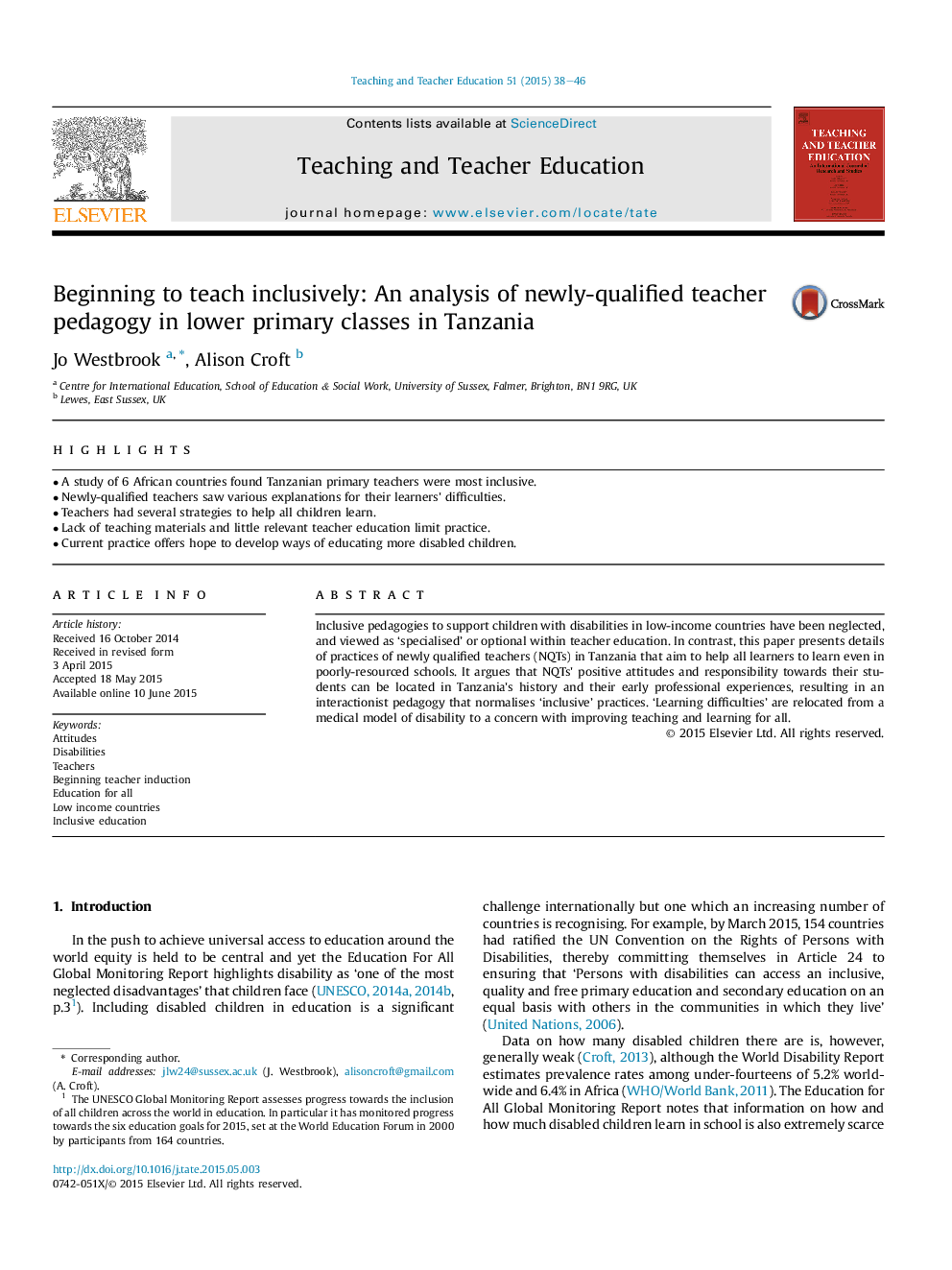| Article ID | Journal | Published Year | Pages | File Type |
|---|---|---|---|---|
| 373923 | Teaching and Teacher Education | 2015 | 9 Pages |
•A study of 6 African countries found Tanzanian primary teachers were most inclusive.•Newly-qualified teachers saw various explanations for their learners' difficulties.•Teachers had several strategies to help all children learn.•Lack of teaching materials and little relevant teacher education limit practice.•Current practice offers hope to develop ways of educating more disabled children.
Inclusive pedagogies to support children with disabilities in low-income countries have been neglected, and viewed as ‘specialised’ or optional within teacher education. In contrast, this paper presents details of practices of newly qualified teachers (NQTs) in Tanzania that aim to help all learners to learn even in poorly-resourced schools. It argues that NQTs' positive attitudes and responsibility towards their students can be located in Tanzania's history and their early professional experiences, resulting in an interactionist pedagogy that normalises ‘inclusive’ practices. ‘Learning difficulties’ are relocated from a medical model of disability to a concern with improving teaching and learning for all.
